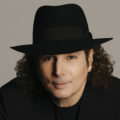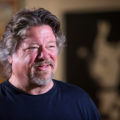Longevity in jazz leads to a classic rock “Vinyl Tap” for the suburbs-bound Spyro Gyra
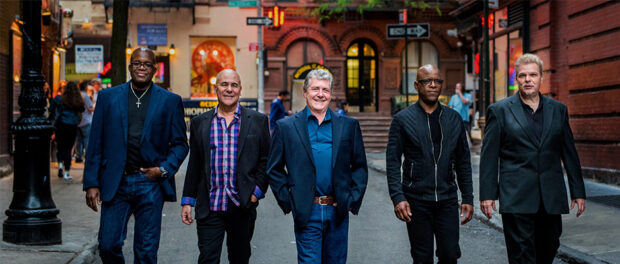 Photos provided by Brian Friedman / Be-Freed Photography
Photos provided by Brian Friedman / Be-Freed Photography
Few acts have captured the hearts of both discerning jazz aficionados and the commercial public to such a seamless degree as Spyro Gyra, whose nucleus of saxophone player Jay Beckenstein, keyboardist Tom Schuman, guitarist Julio Fernandez, bassist Scott Ambush and drummer Lionel Cordew feels like it’s been unchanged forever.
Perhaps that’s why the group is still improvising its way around all aspects of the genre well over four decades since forming in Buffalo, New York after blurting out the first name that came to mind when a bar owner asked what to put on the marquee.
Even though that’s basically a type of algae misspelled, it didn’t stop the guys from racking up gold and platinum albums galore as they bounced between, fusion, smoother stylings and contemporary classics, constantly evolving all the way towards classic rock re-interpretations of The Beatles, Blind Faith, Cream, War and more for their latest long player, “Vinyl Tap.”
Chicago Concert Reviews called co-founder Beckenstein now that Spyro Gyra has its sights set on the Des Plaines Theatre come Saturday, October 15, which will add yet another appearance to over 10,000 shows spread throughout six continents.
What’s kept Spyro Gyra going for well over four decades?
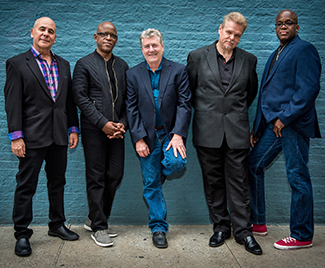 Jay Beckenstein: My flippant answer to that is we never made enough money to stop [laughs]. But in truth, the organization is set up in such a way that it’s very creatively rewarding to be in it. If you’re in the band, you get to write, you get have a say in things, you get to be part of what’s become a really nice unit, a la a great basketball team. I think for that reason, the members in the band have been together for 40 years without change, except in the drummer chair and our current drummer’s been with us for almost a decade.
Jay Beckenstein: My flippant answer to that is we never made enough money to stop [laughs]. But in truth, the organization is set up in such a way that it’s very creatively rewarding to be in it. If you’re in the band, you get to write, you get have a say in things, you get to be part of what’s become a really nice unit, a la a great basketball team. I think for that reason, the members in the band have been together for 40 years without change, except in the drummer chair and our current drummer’s been with us for almost a decade.
I think that it’s also, from a musicians’ standpoint, an extremely rewarding band because you can do whatever you want musically and you can bring whatever you want to the table. It doesn’t have to be anything in particular. If a band member wants to play something that’s really funky/R&B, we will take joy in it. If somebody wants to play something straight ahead jazz, we will do that. If a member of the band, most notably our guitarist, Julio Fernandez, who’s Cuban, wants to bring something authentically Cuban to it, we’ve learned to do that as well, so it’s terrific as a musician.
There’s also demand, quite frankly. If we had put on our 20th show in Boston and nobody came, there wouldn’t be a 21st show. Throughout the 40 years of the band, we’ve always been able to have people be interested and that has given us freedom. That freedom has let us always be something vital and that has kept the audience interested. It’s an altruistic spin on things… I am just so incredibly grateful to the steadfastness of people that have been interested in us and that ultimately has been a lifeblood.
How would you describe your evolution, even as jazz trends have changed?
Beckenstein: I’m not sure if its evolution, per se. There has been evolution, but much of that has been caused by technology. I would say [we’ve been] true to ourselves all the way through. Trends come and go, opinions about what’s jazz come and go, but when you come see us live, you’re going to see five very, very musical guys that have played together for decades. It’s a really fine, vintage wine that ignores all that other stuff, what decade the music is from or what trend there is. We dabble in everything. I suppose you could say we dabble in everything that African music touched, whether it’s Brazilian, Latin, American R&B or American jazz. That’s really what we’re about, so we just keep true to ourselves, play music we love, make stuff that we think is sophisticated, make stuff we’re proud of, play as hard as we can and ignore whether something we’re doing is trendy or not.
What do you think accounted for the band’s streak of several gold and platinum projects?
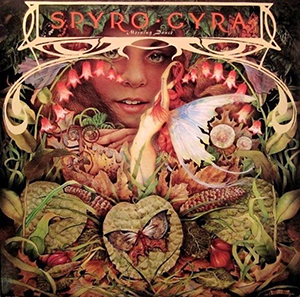 Beckenstein: So much good luck [laughs]. There were plenty of great bands and musicians. We just hit it on the radio at just the right time and I suppose we made some moves that were super pro-music, in our opinion, that had panned out. I knew that sort of success was freak-ish for an instrumental band. It simply was. History says so. Instrumental bands may have had a hit along the way. I can think of Hugh Masekela with “Grazing In The Grass” or a number of other things back in that day, but I can’t think of a band that turned it into such a touring success as we did. I think when we did big sheds at the time, even though we were essentially a bar band from Buffalo, we were able to project something really strong and it carried us.
Beckenstein: So much good luck [laughs]. There were plenty of great bands and musicians. We just hit it on the radio at just the right time and I suppose we made some moves that were super pro-music, in our opinion, that had panned out. I knew that sort of success was freak-ish for an instrumental band. It simply was. History says so. Instrumental bands may have had a hit along the way. I can think of Hugh Masekela with “Grazing In The Grass” or a number of other things back in that day, but I can’t think of a band that turned it into such a touring success as we did. I think when we did big sheds at the time, even though we were essentially a bar band from Buffalo, we were able to project something really strong and it carried us.
Many artists at that point, I think of George Benson as one, and I love George Benson –
a fantastic musician, a fantastic guy – but he made a real conscious decision to branch out into vocals and pop based on his initial successes as an instrumentalist. That was a really conscious decision that brought him fantastic success and he made great music in that realm, but he changed according to the trends of his time in order to reach more people and whatever. After we had a platinum and two gold records, that sort of stuff was being offered to us. “You should have this singer on it.” “You should get this producer to do this” and “by the way, you guys should wear some really funny clothing too.” I felt that was just a “no.” I was much more in my head dedicated to being a great musician than being a popular artist or a great success. So we did stick to our guns and we made some really great music in the ‘80s when maybe other people were branching off into some real banal stuff, I say with pride.
What led you to go towards the route of remakes for your latest album, “Vinyl Tap?”
Beckenstein: Well, I think that record was probably number 32 or number 33. We’ve always sought, often futilely, to make our records different from each other and to show some, you used the world earlier, evolution, a really hard thing to do when you make a lot of records over the years. It’s very easy to repeat yourself. In order to not do that, we sort of themed records when we started thinking of making them. I might say, “listen guys, let’s go world music. Let’s have international sounds” or “let’s go more acoustic,” whatever it is to just trigger some difference from record to record after so many, so that’s what this was. What have we never done in 32 records and 40 years? We’ve never done covers!
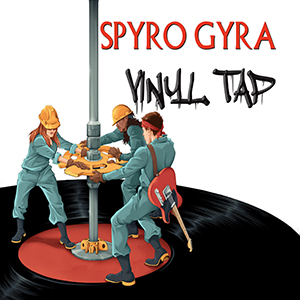 Now everybody else has done covers, so there was trepidation going into it that, a, we would just sound like so many others doing covers, or b, we would sound like a wedding band doing covers. So we went into it with our own take on things, which is to play the songs but really be true to our own intent and not be afraid to radically alter songs or to intensify, in some way, what the original artist was saying. I do think that record reflects a set of cover tunes that hold their own as works. They’re not just copies of something. They are really of themselves, although obviously the inspiration came from somebody else.
Now everybody else has done covers, so there was trepidation going into it that, a, we would just sound like so many others doing covers, or b, we would sound like a wedding band doing covers. So we went into it with our own take on things, which is to play the songs but really be true to our own intent and not be afraid to radically alter songs or to intensify, in some way, what the original artist was saying. I do think that record reflects a set of cover tunes that hold their own as works. They’re not just copies of something. They are really of themselves, although obviously the inspiration came from somebody else.
Were there any specific criteria for the covers you choose?
Beckenstein: Like everything else when we make a record, I throw it out to the five of us, six of us including our manager. When it came to this, a notice went out from me, “think of what songs meant a lot to you” and there was a second notice saying, “shy away from R&B tunes that have been done by countless artists as instrumentals.” I know on my part, although I adore and have been affected by the Marvin Gayes of the world, I was trying to avoid what smooth jazz has become, a bit of a cliché, covering R&B hits. The tunes kind of took a classic rock turn, which was interesting, but that was brought by the individuals. Julio brought The Beatles’ [“You’ve Got To Hide Your Love Away”]. He just always wanted to do that as an instrumental. I brought [Johnny Rivers’] “Secret Agent Man” because I thought the band could do a drunken Cab Calloway thing really well. It was just everybody putting their two cents in, then getting together and trying these crazy ideas. “Let’s do this song reggae.” “You would never imagine this was this, let’s give it a try.” We did it in rehearsal. A lot of ideas were making us smile and making us laugh, so we ran with it.
What’s on tap in terms of your repertoire now that you’re back on the road?
Beckenstein: Our shows have always tried to cover way too many bases for 90 minutes or whatever a show lasts, but we’ve gotten pretty good at having about half the show be earlier music that a lot of people want to hear and then the rest of it is music from all our different eras, including “Vinyl Tap,” but the central focus of that music is to give individual players a chance to shine. That’s a big part of what we do. We’ve got a lot of musicianship in the band and everybody gets some spotlight.
Do you remember any previous Chicago area concerts?
Beckenstein: Oh my God, well, of course I have memories of big concerts we did early on playing Ravinia. I also have fantastic memories on Navy Pier. Those were great festivals way back when. I also have some real funny ones of playing the club on top of the Playboy Club downtown. I’ve got great memories of Chicago concerts.
At this point, you’ve played over 10,000 shows on six continents. What points of commonality do you find no matter the location and what are some noticeable distinctions?
 Beckenstein: First of all, we play instrumental music, so no boundaries. Commonality everywhere. Everyone gets it. And where does that commonality not work in this world? Humor. I love to tell jokes from the stage in America. There are so many languages out there. It’s hard to talk to audiences in Indonesia, so that’s one big difference I see, but once we start up the music, there’s no boundaries. Instrumental music is fantastically universal. It is the Esperanto of art forms. Nobody doesn’t understand what music is made of, which is basic human components: heartbeat, breathing in and out, symmetry. Everything human is in that music somehow and everybody on the planet gets it.
Beckenstein: First of all, we play instrumental music, so no boundaries. Commonality everywhere. Everyone gets it. And where does that commonality not work in this world? Humor. I love to tell jokes from the stage in America. There are so many languages out there. It’s hard to talk to audiences in Indonesia, so that’s one big difference I see, but once we start up the music, there’s no boundaries. Instrumental music is fantastically universal. It is the Esperanto of art forms. Nobody doesn’t understand what music is made of, which is basic human components: heartbeat, breathing in and out, symmetry. Everything human is in that music somehow and everybody on the planet gets it.
Is there anything you would change about any aspect your career?
Beckenstein: I would’ve bought that damn brownstone in Manhattan [laughs]. My career, you know the one thing that I think we would’ve been absolutely fantastic for was film scoring. I think the band was made for it and we never had the opportunity. I look back and that’s one thing I wish we would’ve had a chance to do. We’ve played with symphony orchestras. We’ve done every conceivable thing, but film scoring is something I wish I would have been more involved in. From what I hear, you don’t do that on the side. That is a fully dedicated, networking, put in your dues world.
Do you have any other dreams left to fulfill?
Beckenstein: One of my children, my oldest daughter, lives in Ireland. She has a nice life and I have a grandchild there. I am secretly studying Irish penny whistle so I can go into a pub over there with them and knock their socks off! My dreams are small my friend.
What are you most pleased to have accomplished with Spyro Gyra?
Beckenstein: At this moment, being 70-years-old and finding myself with the energy, and motivation and capability to still make great music.
Spyro Gyra performs at the Des Plaines Theatre on Saturday, October 15. For additional details, visit SpyroGyra.com and DesPlainesTheatre.com.



